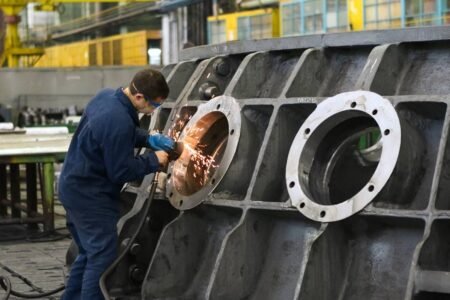The EU Council of Ministers adopted on 14 April a new Directive to ensure the better application at national level of EU citizens’ right to work in another Member State. The new rules, proposed by the European Commission in April 2013, aim to bridge the gap between rights and reality and will make it easier for people working or looking for a job in another country to exercise their rights in practice. Member States now have two years to implement the Directive at national level.
Advertisement
The Directive, proposed on 26th April 2013 (IP/13/372), aims to remove existing obstacles to the free movement of workers, such as the lack of awareness of EU rules among public and private employers and the difficulties faced by mobile citizens to get information and assistance in the host Member States. To overcome these barriers and prevent discrimination, the Directive will require Member States to ensure:
- one or more bodies at national level will provide support and legal assistance to EU migrant workers with the enforcement of their rights
- effective legal protection of rights (including for example protection from victimisation for EU migrant workers who seek to enforce their rights) and
- easily accessible information in more than one EU language on the rights enjoyed by EU migrant workers and job-seekers.
These rules will benefit mobile workers but also employers, who will be better informed when hiring people from another EU country.
Independently of this new legislation, the Commission, as guardian of the Treaty, will continue to pursue infringement procedures where necessary against Member States in cases where national law is not in line with the their obligations under EU law.
Background
The right of EU citizens to work in another Member State is laid down in Article 45 of the Treaty on the Functioning of the European Union (TFEU) and includes the right not to be discriminated against on grounds of nationality as regards access to employment, pay and other working conditions. Regulation (EU) No 492/2011 details the rights derived from free movement of workers and defines specific areas where discrimination on grounds of nationality is prohibited, in particular as regards:
- access to employment
- working conditions
- social and tax advantages
- access to training
- membership of trade unions
- housing
- access to education for children.
Currently 3.3% of the EU labour force, or 8 million people, live and work in another Member State. An additional 1.2 million people live in one EU country but work in another. But people working or wanting to work in another country often lack information about their rights in the host Member State and can have difficulties accessing a job or ensuring they have the same working conditions or social advantages as national workers. In addition, employers (both public and private) and public authorities often have poor knowledge of the rights that mobile workers have. The assistance given at national level to EU mobile workers to help them enforce their rights is highly variable.
Common discriminatory practices include:
- different recruitment conditions
- nationality conditions for accessing certain posts
- different working conditions in practice (such as pay, career prospects and grade)
- problems with access to social benefits which are subject to conditions more easily met by nationals than by EU citizens (e.g. residence conditions)
- professional qualifications and experience acquired in other Member States not taken into account or taken into account in a different way.
The free movement of workers is not only an essential element of the EU’s Single Market, but an asset to all EU countries. Mobility can help to address high levels of unemployment in some Member States and skill and labour shortages in others. This is why the Commission is also working to further improve the efficiency of the pan-European job search network EURES, so more vacancies are available to more candidates all through the EU.
Studies have consistently shown that mobile labour force brings benefits to host countries. Mobile workers complement the national labour force by filling shortages, they are more likely to be in employment and, since they tend to be of working age and therefore younger in average than the host population, they are less likely to receive benefits, being generally net contributors to the public purse. By sending home part of their income, mobile workers also provide significant support to domestic demand, investment and entrepreneurship in their countries of origin.







